
This review may contain spoilers
Penthouse was a really peculiar experience for me, something that I haven't encountered in my journey through dramaland yet. A full blown makjang extraordinaire, the closest thing to grotesque, truly faithful to its baroque provenance - extreme, excessive, contradictory and uncomfortable to watch. So, fortunately, it completely fits my preferences, but generally speaking it's not the easiest thing to swallow. The writers of this drama don't want to spare their audience, they don't play easy. This is a show full of twists and turns, exaggerated acting, hilariously absurd scenes and plot resolutions, irony and overall over-the-topness. Classical music playing in the distance while the red wine is tossed around the table and the characters slap each other. You're gonna either retreat in disgust seeing that combination or you'll end up loving every second of this on-screen madness spectacle.
On the surface it's all about the glam and gore, but it's not completely shallow as it might seem. It's a well known story about the destructive nature of greed and a satire on classism and the invincible regime of The Rich™. We have the class of bad bourgeoisie, corrupted and rotten to the core, with Joo Dan Tae in the lead. He's more of an idea, the personification of Evil that rules in this big Moloch-like castle that is Hera Palace. The building itself is very symbolic too, it rules over the city as the highest and the most luxurious/desireable residential building in the city, but its nothing more than a devilish machine that devours its residents and transform them into greedy and inhumane versions of themselves . They're all a part of the system of injustice that either destroy the poor and weak (Min Seol A) or corrupt their mind too (Oh Yoon Hee). Every character in this show is more or less despicable and we truly love to hate on them all. From the evil mastermind Dan Tae, witchy Seo Jin and her Lady Macbeth-esque descent into madness to naive and easily manipulated Yoon Hee. Even the audience's sweetheart Su Ryeon is not completely flawless. And the sad conclusion that's left at the end of the show is that in the end there is no escape from the creepling evilness. You can try, you can fight and the skies will eventually side with the rich. But for how long? Well, we will see in the next seasons!
What I truly loved about this show were the little bits of absolutely random comedic scenes. They were surreal and hilarious (with the lucha libre kidnapping being my absolute favorite), but somehow fit the mood of the entire show. And I felt like it was a reminder that this show is not 100% serious and should be treated that way. We love a self-aware makjang!
The only thing that bothered me was the entire subplot of kids. Well, it wasn't a subplot per se, as the kids played a major role in the whole plot (as a catalyst of Min Seol A tragedy, their parents weakness and kind of a deterministic effect of their parent's flawed parenting), but I felt like it stood out from the main plot that took place in the "adult world". Especially interactions between the kids themselves, it felt like a separate story. And the writing in this part was really weak. Some characters didn't make sense (Ro Na especially), so it was hard to watch.
Writing was kinda bumpy for me in general. The beginning was fantastic, really well connected events, logical (even for this drama!) consequences and reactions from the characters. But the ending felt really flat with too much information given in the last minute and too convenient plot resolutions. Also (please, don't kill me for that hot take!) I feel like some actors went a little overboard with their exaggerated acting. Yes, it fits this type of show, but I felt like they relied too much on screams, evil smirks and wide opened eyes. Even when the seamless transitions between these expressions were truly outstanding (Kim So Yeon), it really loose its impact when it's repeated few times .
Overaly it's such a fun show. If you're willing to abandon logic and embrace the madness of this drama, it's gonna be a time well spent. But beware, it's really addictive!
Was this review helpful to you?

This review may contain spoilers
Manipulate. Mansplain. Manslaughter.
Starting this drama I knew what to expect – angst, betrayal, tragedy, anguish – and this drama served exactly this to certain extent… plus gazillion of other plotlines that significantly weakened the whole story and made me pull my hair out with frustration. Thanks to that the plot was not executed in a way that would make me actually feel any stong emotions, at least not in the later part of this drama, which is a bummer because isn’t it the whole point of melodrama? To make me FEEL something?
In fact I really enjoyed the begining, the first 15 episodes or so, they were fast-paced, entertaining and played out on the screen like a very classic type of a tragedy. The gradual build up to the massacre of Danchi Clan with that scene where Li Chengyin is literally changing sides on the battleield is amazing (Top 10 anime betrayals btw). However anything that happens later (sans the Second Prince arc. Even if it wasnt the most original subplot) is just a perfect example of filler. Overstretched and mundane scenes with the characters that bring nothing to the plot. Or supbar palace schemes where some of the villains basically handed themselves on the silver platter. And please don’t forget the endless emo escapades of Gu Jian. It all could have been compressed into maximum 10 episodes not 30.
At some point it became clear that most of the the revenge/political plotlie exist to emphasize the tragic nature of the romance but on its own it was really simplified and overall poorly written. Except the beginning arc and the final 5 episodes, it was scattered all over the place. I think it’s a huge waste of a potential, because Li Chengyin could have efortlessly carried that side of the story (not to mention that Cheng Xing Xu showed that he has the acting chops to do so) and there definitely was a time to develop other characters, so they could have been more than walking stereotypes. Speaking of Chengyin, I think he was the IT factor of this show. He was ruthless, selfish, pragmatic, jelaous, but you could understand what shaped him to became like this. He’s definitely the most complex character, but I just wish he was more personally involved with the political part of his vengance plan because most of the time things just conveniently happened in his favour.
I had a hard time believing in Chengyin’s love for XiaoFeng because it wasn’t sincere in their „first life” and in the „second” it was just full blown narcissistic fixation. On the other side we have XiaoFeng who was very young, sheltered, naive and she wasn’t able to look at the bigger picture of things. Let’s face it, she wasn’t the smarterst cookie. I believe that her feelings were more genuine and pure, but her lack of insight and almost childish innocence made the whole dynamics between the leads more disturbing and disonant in my eyes. So I wasn’t on board with the romance and did not particulary care about how tragic and doomed was the fate of their relationship.
Arguably the most important part of the narrative is that the ultimate tragedy didn’t affect only the leads but everyone who was related (voluntarily or not) to the Imperial Palace. So once again the big bad wolf was the human desire to have power and control that in the end turns people into greedy hypocrites. In the grand scheme of things Xiao Feng was as much of a victim as Chengyin (the parallels between him and his father were nicely done) or Sese or General Gao (loved that guy btw) or even entire Clans. They all got their lives influenced, sometimes badly, by the destructive nature of power. How they dealt with that is a whole another story, but eventully they were all thrown into a figurative battleground because that’s just how humans work. I really liked that it was the final message here, it’s a little cliche, of course, but it works most of the time.
So, I think this drama disappointed me, it was really uneven. It started with a blast and it had a lot of room to develope or improve things, but it never fully went there. The characters were interesting (even though I think only Chengyin had the complexity worth mention) thanks to great acting performances, drama was also visually stunning (if you like strong saturation and bright colors), but there is a part of me that will be forever salty that it didn’t reach that level of greatness that would make me think „wow, that was a journey”. In the end I didn’t feel anything.
Was this review helpful to you?

There is also that perverse satisfaction of watching and accepting lynch as a right form of seeking justice on murderers, rapists and members of the mafia. The fact that all of this happens in a criminal 'demimonde' is almost like a permission to accept that unlawful method thus our deepest desire to punish those monsters is alleviated.
Every piece of the story is well thought out and it comes together into enjoyable, thrilling and satisfactory ending. Definitely worth a watch especially if you're in the mood for something bold, ruthless, unusual and weirdly entertaining.
Was this review helpful to you?
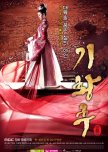
This review may contain spoilers
I found Empress Ki to be truly exceptional because of how uncommitted it was to its main themes and ideas. It's almost like the writers tried really hard to get their points across, but didn't have right tools, so they ended up trying everything. In result the whole show is torn somewhere between makjang and epic historical. Or between profound drama and pulp romance. Ultimately the grand narrative about national affiliation, loyalty, power or loneliness got lost in uneven and overexaggerated script. Some things I loved, some things I wish I only imagined because someone accidentaly gave me acid, but I semi-enjoyed the whole product. Here's a short list of the best and the worst aspects of this show.What distinguish Empress Ki from similar epic tales is its main theme - identity, or to be precise, national identity - what it means and how important it is. I really enjoyed the idea that Seung Nyang's love triangle figuratevily means something entirely different, that her love for two men symbolizes her being torn apart between two countries. One is loyal and noble the other one is unpredictable, but full of opportunities. But which one has the power and influence to improve people's lives, stop the war and famine? Which one should she choose to satisfy her personal agenda? I think the conflict of "what heart wants vs what brain tells you to do" was one of the most interesting aspect of this drama. Especially those short yet meaningful scenes full of hidden anguish, regrets and bitter taste of lost.
There was a one scene where Seung Nyang, as an Imperial Concubine, declines a personal meeting with Wang Yu and tells his subordinate that from now on he should apply for a formal meeting with her. In this scene she separates herself from her past and partially from Goryeo, she chose Yuan Empire. When she says those words camera pans at the small mirror in front of her face and it's like the mirror is questioning her feelings and her real intentions. It's also here to question her identity. Small details like this scene were my favorite.
The correlation between Goryeo's people national identitiy and individuality is a recurring theme in this drama. It takes different forms, from anger and distrust that leads to extreme decisions (Yeom Byung Soo), hopelessness and resignation (Dok Man) to fearless fight full of idealism (Wang Yu). Seun Nyang felt that becoming an Empress was a victory and she helped Goryeo as much as she can by initialy "betraying" her roots. In the end he ended up utterly alone. A stranger in no man's land.
Though I wished to see more of Seung Nyang's internal conflict between her desire to power and her need to help the people of Goryeo, her fighting her own war with people's prejudice, her mortal enemies and Yuan Empire's dignitaries was a joy to watch. Especially since Seun Nyang actually put an affort to learn and master the art of strategy, so it wasn't just Mary Sue's deus ex machina. I must admit that I didn't like her at first because of her goody-two-shoes personality in the first half of a drama. She was too flawless which didn't feel "real" in a sense that she was more of a novel heroine that real human being that I was supposed to root for. In the beginning it truly felt like she didn't move plot forward, but isntead the plot was moving her around, changing her motivation and/or personality according to its needs. I think she was just a victim of bad writing, horribly executed romance and ridiculous makjang-y scenes.
I'll be blunt and honest, the over-the-top writing was one of the main reason's why I didn't enjoy Empress Ki as much as I wanted to. In one moment it was a grand, almost theatrical, spectacle about the different shades of human nature. In the next scene we had a woman getting bit by a phantom creature as a result of a magic spell. I was baffled by some of the writing choices because they served no purpose at all or were incorporated into the script for the sake of shock value. The bizarre time skips, absurdly over dramatic plot resultion and laughable emotional moments totally killed the mood for me few times. Usually I like all things grotesque and camp, the unpredictable mixture of tasteless and holy, but this time it didnt work for me because I felt like it wasn't intentionally in a bad taste. I swear I saw more wrist grabs in this drama than in the recent romcom I've seen and that was not a good thing.
Speaking of the devil, despite the fact that I highly appreciated the symbolic nature of a romance in this drama, I absolutely hated the way it was executed. It was so damn corny and uncomfortable to watch for the first half of the show (and please rememeber that it is roughly 25 episodes), with oldschool kdrama clichés, sappy romantic ballads playing in the background and a lot of silly moments. Sometimes it was unintentionally hilarious and I enjoyed it in all of its cringey glory, but for the most part it was annoying and the constant mood shifts took me out of the story several times. Because of that I couldn't take that romance seriously, so the eventual heartbreak and tragedy that happened later on completely lacked emotional impact.
Moreover, there is nothing more infuriating than a lenghty drama with a lot of one-dimensional characters. Except for Nyang and the Emperor there was hardly anyone who could catch my attention. The characters didn't have much needed nuance, they served the purpose of either a plot device (Yeom Byung Soo, Yeon Bi Su, Jaek Ho or - the strangest of them all - Golta), cartoonish villains (Yeon Chul, Dang Ki Se, Empress Dowager, the second Empress and once again Yeom Byung Soo) or just a supporting squd that was... just there (Wang Yu's men), but I didn't really blame the last group, although it was funny that the writer expected me to care about their deaths. The only ones that had something going on for them were Tanashili, Baekan and Tal Tal. The first one's malice as a result of expectations, manipulation and inferiority complex was not as shallow as it initially seemed. Baekan has one of the most cohesive arcs in the whole show. The parallels between him and his fallen idol Yeon Chul was forshadowed on the show on many occasions, so his journey was not really surprising, but there was a consistency and almost archetypical meaning that I personally enjoyed. And at some point someone suddenly decided to give Tal Tal some sort of personality (after more than 20 episodes), but I'm grateful for this decision. Thanks to that we got one of the most level-headed, smart and mysterious characters that was a great mentor and adviser for Seung Nyang. I have to admit that their power duo made the whole palace power struggle much more interesting.
Finally, I have to say few words about my favorite character - Emperor Ta Hwan - the only aspect of this show that I loved from the start to finish. I liked him simply because he was deeply flawed. Unpredictable, pitiful, annoying, childish, dangerous, selfish, charming and oh, so deeply human. He truly felt like an actual living person, full of insecurities and anxiety. Really vulnerable man whose constant need for validation, love and understanding met only with greed, betrayal and emotional manipulation and it led him to destruction. Just one character had so many layers , his story was difficult yet fascinating to watch.
So, what's my deal with Empress Ki? I think it didn't meet my expectation of what historical drama should look like thus the plot (ot rather mishaps in the writing) outweighted the other parts that were definitely memorable and worth my time. It's a rare case of a show that left me emotionally detached, slightly annoyed and bored at times when it clearly could do better. A lot of missed opportunities and wasted ideas. I feel like its chaotic, grandiose and campy energy is something that will either fascinate you or you'll end up bitter and disappointed... like me.
Was this review helpful to you?
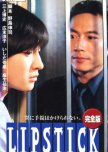
This review may contain spoilers
Lipstick has a really interesting, atlhough a little far-fetched, concept. Psychological/healing type of drama in the prison-like juvenile center setting. 5 girls with different life experiences and traumas trying to move past that by learning more about themselves through each other. And a few wardens with similar emotional scars. What could have gone wrong? Well, a lot.First of all, the whole juvenile center has a bizarre resocialization program. For some reason wardens plays the role of counselors/psychologist there. Nothing was said about their competency, but I don't think they should have such authority, because they clearly used the people they were supposed to help as a tools to help themselves, which is... totally wrong. Especially if you deal with kids/really young adults, as noone from the "inmates" was older than 20. If you use the vulnerable and lost person to explore your own trauma, then that's wrong. If you use violence to pass the point across to that person, then that's wrong. If you found out that a person was abused by their own family, then you should intervene and don't send that person back to their abuser, because that's wrong. I feel like the incompetence of those wardens/counselor caused more harm than good and it bothered me to my very core. I guess I was supposed to accept them as a human's fault or a institutional flaw, put some level of suspension of disbelief on it, but it all came off to me as just a lack of empathy and basic human decency. I couldn't put my own judgement and emotions aside and accept that whole thing as just a setting for figurative screen-play-like story about the importance of emotional connection or a story about "lost souls". One component (bizarre setting and its lack of logic) was overshadowing the other (the almost poetic story about the emotional bond).
That's also part of the reason why the relationship between Ai and Yu rubbed me the wrong way (aside from the clear power imbalance and age difference). It was portrayed as this profound, soulmate type of bond that transcends stereotypes/age/status, but to me it was really toxic, codependent and truly conceptual. I feel like Yu treated Ai as his Manic Pixie Dream Girl. It really was't about them learning how to grow through each other's support, but more about him coming to terms with his identity as an artist and overcoming his trauma through the idea of who, or what, Ai is. I feel like Ai didn't change at all through their journey. She was looking for acceptance and one could say that in the end she was accepted, not only by her new friends, but also by Yu who "saw her true self", but I can't agree with the latter. For him she was an affirmation of who he was, his muse, his motherly figure, his lover and the redeption of the guilt for the jealousy he felt for his brother. An idea.
With addition to my first paragraph I have to mention how unevenly handled some of the other girl's arc were. They were the true stars of this show and the only reason I sticked with the show till the very end. You get absolutely emotionally invensted in each girl's storyline and end up rooting for them. They are all very different and unique, but totally loveable. And their developing friendship the most heartwarming thing in this show. I actually liked that some storylines had an open and ambiguous ending (Poppo and Eriko), but some of them were totally underdeveloped (Anna) or just unecessary tragic (Mashiro). I actually wanted some kind of closure or definite stance on Anna's story, because this girl went through such an intense psychological manipulation, have done things she didn't want to, but... that was it. Her story stucked in the middle and didn't move past that. On the other hand Mashiro arc made me truly furious. Not because it ended like it did, but because there was no commentary about that situation. The girl was raped by her step-father, got an abortion because the bastard made her pregnant, and what people from the juvenile center did? What her counselors did? What doctors and lawyers did? Sent her right back to her "family", so after another rape the poor girl took her own life. And the show didn't do anything with that other than present it as a "sad reality". That could have been a critique of justice system, rape culture or collective ignorance when it comes to family issues, but no, it just happens sometimes. Yu felt some sort of remorse after that, but everyone else was silent. No responsibility for the rapist, no responsibility for the people who were supposed to protect Mashiro, no responsibility for government and law that didn't protect her. It just happens.
I loved the atmosphere of this show, it is something truly unique to those older jdramas. Something about hope, melancholy, sadness, bitersweetness and poetic way of desciribng one's emotions that you wouldn't see elsewhere. With that said, there is also a certain level of pretentiousness to it. Getting overboard with choirs, angel imagery, edgelord characters that are truly eye-rolling (Koki), you know what I mean. You either love it or hate it. It is kinda old-fashioned, but I personally really dig that vibe, so I didn't mind it that much here.
Aside from the girl's friendship and peculiar atmosphere I also really like the OST. Not only it fits the mood of the story perfectly, but it is also good on its own. If you like 80s ad 90s japanese pop, check out REBECCA asap.
In conclusion, I didn't regret watching this drama, when it was good it was really enjoyable. I just feel like they relied to much on the concept/abstract idea of the show. And because they wanted to incorporate that strong ideas into the semi-realistic setting, the whole thing is too heavy-handed, incohesive and edgy to enjoy it as a whole.
Was this review helpful to you?
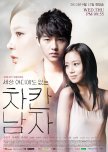
This review may contain spoilers
When you find yourself laughing like a maniac while watching a show that is described as melodrama, then you know you’re in for a wild ride and some good entertainment. Good in a bad way. I started this show not knowing that it is, in fact, a full blown makjang with all its tropey glory and infamy. The overdramatics of it all was amusing enough for me to totally enjoy the first half of this drama. We had manslaughter, injustice, betrayal, revenge, rich heiress, poor man, terminal illness, greed and jealousy. It was ridiculous, engaging and surprisingly fun, but oh so outdated at the same time. And quite frankly one’s patience must be enormous to be able to put up with it for the course of 20 episodes. Especially after the halfway mark when things starts to get progressively more frustrating. Because what was missing in that perfect recipe for a succesfull pre 2015 korean melodrama? A M N E S I A. Not only once, but twice!
To be fair the premise of this story was not that bad Not innovative? Yes, but still it could be a solid melodrama for those who are into this type of stories. But to be good, or even just decent, it requires the existence of characters with rich personality and plot that doesn’t rely on cliches/tropes too much. Unfortunately this drama went overboard with the latter to the point of absurdity which made the whole thing look shallow and ridiculous. Too many cliches, handed too forcefully. I know it's a base of all makjangs, but at some point it felt like writers were beating the ground because the horse was no longer there.
I appreciate the fact the writers took a time to write quite complex characters and avoided the typical binary division of good vs evil. It goes deep into the psyche of the main characters, shows all sides of their nature and psychology behind their actions. They are deeply flawed, cosumed by their human desires and emotions that they cannot control as much as they would like to. I especially enjoyed the main antagonist, Han Jee He, because she was not evil for the sake being evil, her motivation was understandable considering her position, experiences and ambitions, so the reasoning behind her actions was crystal clear to me. Same goes to Kang Ma Ru, the protagonist of the story. Again, I don't condone what he did, but I was able to understand why he behaved like he did and why he went so far for his revenge. I can't say the same about Seo Eun Gi, the final element of this convoluted triangle, because I truly feel like she was just a plot device. Her character didn't have any kind of real development nor profoundness. She was just there for Ma Ru to reconsider his path and for Jee He to finally give up.
So why am I not satisfied with the characters here as well? Because it all went to shit after couple of episodes.
I feel like Eun Gi's amnesia was the turning point of this show. Not only cliches started popping out from left and right and absorbed the story completely, but character's behaviour stopped making any sense. All of their previous ambitions and motivations disappeared and the show focused solely on character's mad thirst for pathologically twisted need of owning someone that was clearly mistaken for love. Like they were completely different people and their personalities were switched. On top of that none of these relationships were sane, as they were built on lies, possessiveness, abuse and manipulation. And it could have been an actually good addition to the psychological portait of our main characters, but came out as contradictory, sometimes highly irrational and - combined with gazillion tropes - overdramatic and not convining at all.
Acting was suitable for this type of stale production. Overally decent, but theatrical, overdone or completely wooden in more challenging scenes. I truly loved the music though, especially the intro with accordion, that's the kind of dramatics I expect from shows like this.
With that said, I am happy that I've watched this now, because it truly made me appreciate the progress kdramas have made with the quality of storytelling, directing and acting as well. I'm also happy that modern makjangs are more self-aware and writers are more open use the concepts of this genre for artistic purposes.
Was this review helpful to you?
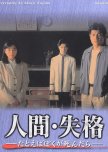
This review may contain spoilers
When the story has such a grip on you that you are willing to watch the last three episodes without subs just to get the closure.Honestly? Even with the obvious blank spaces, that maybe will never be filled in, I think it’s one of the strongest scripts written by Nojima Shinji. Hell, I'd even go furhter and say it's my favorite alongside Kou kou kyoshi. It’s very dark, heavy and a little overdramatic, but I feel like it doesn’t capitalize on trauma that much, at least in comparison to Nojima's other works. It approaches the difficult topics with a decent level of sensitivity and leaves you with much to ponder about. The characters are complex and sometimes it really feels like you are watching a vivisection of someone’s twisted psyche. And it all just works together really well, creating really intense and compelling viewing experience.
I didn’t know that it is about bullying, so I also didn’t know what I got myself into when I started watching this drama. As much as I like to avoid this topic, I have to say that it was presented very well. The vicious circle of bullying, how formerly bullied became bully themselves, the power dynamics that mirror society’s structure, how it psychologically affects even the strongest, how the adults/authorities try to turn a blind eye to the uncomfortable truth. It’s scary how it still relevant even 30 years later.
I liked how Makoto's story was written. He was strong and feisty, not a saint himself since he often resorted to violence because that’s how a lot of problems were settled in his home. He stood up for a kid who was bullied and later fought back for himself, but was eventually broken by the lack of moral and emotional support from the people who were supposed to get his back. Teachers, parents, friends. The walls of his defense was being broken one by one leaving him lost, lonely and hopeless. It was heartbreaking to watch and I kept thinking that it shouldn’t have happened. The society as a whole failed to protect this kid.
I think the same thing about Ruka, even though I firmy believe that he was a serial killer (or a dangerous incel) in the making, he was clearly mentally unwell and no one gave two shits about it. Ruka was the opposite of Makoto, he was weak and lost from the beginning. Once again, someone could have saved him but he fell into the trap of a predator instead.
I really like the development of Makoto's father. He was not a bad parent but he was too short sighted and like many other people he focused too much on making a good impression and not sticking out. He thought that beating his son would solve a problem of him acting rebelious or being ungrateful for a great opportunity to studying at prestigous school but he refused to ask himself WHY his son was making problems. He wasn’t even interested in reasons, he was looking for quick resolutions that wouldn’t escalate the problem. I think he was one of the few characters that indirectly contributed to Makoto's death and took the whole responsibility for it. Even if his vendetta wasn’t the best way to bring justice.
Nimi, the teacher, is honestly one of the nost despicable antagonists I've seen. The prototype of self-loathing incel who is so focused on creating a whole ideology out of his own victimhood that it makes him project every misfortune on other people and some universal cruelity of this world. Honestly, I'd be „better" if was just seething creep on his own, but no, he decided to gaslight and manipulate other people, leading them into their own destruction. Very good villain because I hated his guts. He deserved worse ending though because I’m not sure if the cause of his dead was symbolic (as if it was guilty conscience that manifested itself as Makoto or Ruka) or if the writer just had no idea how to kill him.
And speaking of antagonists – I don’t like what was done with PE teacher. Because what exactly was the deal with him being a crossdresser? Was it his hobby, like he liked to deceive people? Was it drag? Was it a fetish? I'm sure it wasn’t any form of gender dysphoria. Kind of ironic that it was the main thing the escalated Makoto's bullying but in the end it was such a non event and no one talked about it? So does it really had to be cross dressing? Because it felt like the show was stereotype some harmful stereotypes but refused to elaborate further. It rubbed me the wrong way but I guess it's something I can call „a product of its time".
The other thing that didn’t do it for me was Ruka's alleged love for Makoto. I don’t doubt that he had strong feelings for him but was it really love? I saw it more as still developing friendship with a dash of obsession (another parallel between Ruka and Nimi) but I wouldn’t go so far to say that there was something romantic going on between the boys. And same goes for Nimi's obsession towards Ruka, it wasn’t romantic or sexual, he just wanted to mold Ruka into himself. The lgbtq+ tag may or may be not misleading, depending on what you expect.
So with all that said, I obviously LOVED this show and I'd love to give it a solid rate, but I can’t knowing that I didn’t fully get everything and a lot of dialogues got lost in (the lack of)translation. To be fair, I'm surprised how much I understood just from the context and with a help of @savethedata's (thank you♡♡♡) synopsis, but yeah, I don’t think I can rate it with a clear conscience, so it’s going to be the only unrated drama on my list. For the sake of this review I will give it a 9.
Was this review helpful to you?

A bumpy road towards one's dreams is nothing new story-wise, but I like the fact that Brahms does not sugarcoat this theme. Alongside the inspirational one-liners we have a bittersweet message that talent doesn't mean anything or that you are nothing without a talent. That sometimes destroying your dream is a road to true happiness (or not?). Maybe there will be a moment when you start to detest what you once cherished the most. Dreams/happiness is not something that's given to you and it may not be a permanent thing. And that's okay. As a story about young adults and their struggles with the stress inducing combo of work-passion-identity trio, it does an okay job.
I was interested in complicated relationship between Jung Kyung and Joon Young. No, not the love triangle lol, that was horrible. I'm talking about their weird codependency fueled by Jung Kyung's money/power dominance and Joon Young's hopeless love caught my attention. How it affected Joon Young's relationship with music, as well as his personality and interpersonal relations. It was a crippling, toxic relationship created with good intentions and pure feeling. However, the whole love trangle thing when all three of them were just staring at each other, looking gloomy and depressed like the members of a shoegaze band, speaking....exactly... like... that... for....some...reason was so hard to watch. Clichéd and tedious, without any solid, emotional punch line. I guess it did its job and triggered further self-exploration of the characters, but on its own it was just boring and slightly annoying to watch. I did care about the future of each character, but their relationship as a troubled thouple didn't move any strings in my heart.
I also liked the FL. I've seen a lot of people complaining about her lack of development, but I actually appreciate the consistency in her character. We're talking about a girl who has no sense of self-worth. Always self-conscious and anxious. Ready to hide deep within the walls of her own mind when something bad happens again. Endure the pain and try again. Repeat. It's like she still, despite being a full grown adult, doesn't know who she is. I was happy that her falling in love didn't really change anything/fix her problems. but her getting hurt by love forced her to do a big reality check and reflect. Seem like not much, but that's what I expected from such deeply insecure person. They change slowly, step by step. Small growth is still a growth. I liked that.
What bothers me the most is that Brahms never pushed the button to the fullest. There were ups and a lot of flat lines. dull, repetitive scenes, dragged plotlines, episodes that mashed into one pulp of empty spaces that could have been filled with emotions. I love that specific mellow, slow paced, poetic atmosphere in movies/drams, but sometimes Brahms was a little too much, too pretentious for my taste.
And...did I mention... long....
pauses?
Was this review helpful to you?
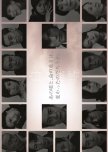
- That's because desire is the purest emotion there is"
For the whole time I was watching this drama, I couldn't stop thinking about how universal and timeless this story is and how it can be re-done over and over again without losing its meaning. That shows how insightful and well-thought-out the source material is. Desire and greed is a permanent part of human condition and we can make the best, as well as the worst, out of it. As we can see in The Great White Tower by the example of Zaizen's aspiration and Satomi's humanism. When you combine it with a multilayered plot about complex politics, interesting and unconventional characters and a solid dose of sublime symbolism, you'll got a memorable drama at least, a masterpiece at best.
The drama is divided into two arcs. First arc is about internal power struggle among the doctors of University Hospital and Zaizen's fight for professorship. It was clear to me that the hospital setting is very conventional, very symbolic, as it was more about what was happening and not where it happened. The meticulous political machinations exposed the true nature of doctors, seemingly the most rightheous and trustworthy class of people, as greedy, corrupted, selfish and egoistic.
With Goro Zaizen as the most self-righteous and cynical of them all. But I have to admit that up until his pettiness allowed him to make a grave mistake, I didn't really see any wrongdoings on his side. Yes, he was overly ambitious to the point of being totally selfish and merciless (and I wanted to punch him in the face for that), but he was true to himself and just played the game the rest of the world was playing. His surgical skills were masterful and he saved a lot of people, so why not use it for your own gain like money, fame, power? After all, what's wrong with having an ambition?
There is no limit to human greed... or is it? Which is the topic of the second arc of this drama. The lawsuit and the court case. This part is more introspective and focused on each character, as they all had to make a hard, and often life changing, decisions. If the first part of the show comes off as a little too raw, heavy and cynical at times, the second part is more humane and thought provoking. It criticizes hierarchal structure of society with the corrupt "top" (or a White Tower) seen here as the medical team of University Hospital. It's also more clichéd with the karmic ending, but I didn't really mind that because it fits the overall story. And my taste in this case (I'd prefer more brutally honest, borderline nihilistic ending) would propably cost this drama a lot of criticism lol.
Apart from exciting plot the other strong aspect of this show lays in well-written characters. I like how Zaizen and Satomi were shown as the polar opposites. One seemingly negates the other, but to me they were so alike. Both ambitious, with similar principles, but driven by the different desire. While one wants to be acknowledged for his craft as the greatest surgeon, the other wants to push further the research for the greater good, not for the fame. While Zaizen seeks power, Satomi seeks hope. While one cares about the result, the other focuses on treatment. But in the end, despie the constant disagreements, they were always full of respect for each other and their unusual friendship lasted till the end.
I also appreciated the recognizable secondary characters, such as Zaizen's father in law, Professor Ugai or - my absolute favorite - Professor Okouichi. And small character developments of Professor Azuma or his daughter, Saeko, were also nice. It's the other female characters that I had a problem with. Zaizen's wife and his lover, Keiko (the actress was fantastic tho). They contributed nothing to the story and failed the Bechdel Test, as they were nothing more than Zaizen's orbiters. I feel like they, especially Keiko, existed only to elevate Zaizen's position as this uber alpha male, which is... sexist.
Although I absolutely loved the symbolic nature of some scenes and the overall pathos this drama oozes with, I cannot for the love of me understand the Auschwitz scene. I feel like that's the second thing that didn't bring anything meaningful to the plot. I think the show tried to be too philosphical with this.
Overall, this drama hit all the right spots for me. It has complex politics, great writing, unconventional main character, fantastic acting, memorable ost and the enormous quantity of sublimity, so if you're into epic and thought provoking stories, then this is a show for you.
Was this review helpful to you?
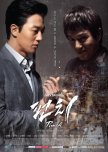
"There are no right answers in life. There are only choices."
Punch is a drama that could have been a masterpiece, but unfortunately had stumbled on its own greatness. I thoroughly enjoyed it, it's a great political thriller that feels fresh compared to the other shows with the similar premise. It's fast-paced, exciting and well-conceived... to the certain extent.The highlight of this show, and something that I'll personally associate with it forever, are absolutely brilliant dialogues. Really thought provoking, full of rich and vivid metaphors and references. Sometimes, it reads more like a philosphical novel than a tv show.
The story dives deep into questioning the human condition, the corrupt and destructive nature of all of us. Our selfishness, greed and the desire to gain power. But it's also a story about self-redemption and the willigness to take responsibility for your actions. The show refers to relativism a lot and tries to question what ideas like "justice" and " rightousness" could mean. The main character, Park Jung Hwan, started his journey with the belief that "the world is just, only when it's good to me" and you can't really change the hypocrisy and inequality of the world. He later decided, that to die without regrets, he has to try and fight those whose corruption destroys the society from within. It's like a battle between his consciousness and the reality which is never ideal. He tries to make a world a better place, by being honest with himself first.
Which you can't say about other character who are blinded by greed. They are more than willing to throw their friends under the bus and then shake the hand with their enemies. The rivalry between the main antagonists of this story, Lee Tae Jun and Yoon Ji Sook, is like a neverending game of constantly changing alliances and backstabbing each other in order to gain the most power. But they're not your typical villains with the lack of complexity. Despite their corrupted natures and the lack of compassion towards their enemies, they truly care about their families and are not total sociopaths. And Tae Joon has a really special relationship with Jung Hwan, that is some twisted version of usual father-son dynamics. There is hate and resentment, but also respect and a deep bond that maybe once was a true friendship. The complexity of these characters is as fascinating as it is terrifying. How many people like that are aound us?
The funny thing with Punch is the fact that the writing is the strongest and the weakest part of this show. What I've mentioned above is obviously the highlight. The bad thing is that the plot is based on one formula that is repeated over and over again. New information is presented -> someone betrays one side/ alliances are changed->one side of the conflict is winning -> another new information is revealed, and so on. The same thing happens with the evidences that usually are "the new informations" that I've mentioned. One side has the evidence -> the other take it back -> the evidence is detroyed. And that's it, that's the plot.
Not to mention the constant arrests, interrogations and accusations thrown at the same people, who happened to be the most powerful prosecutors in Korea. It was overdone and it affected the credibility of the show.
The plot suffered from some illogical mishaps as well .For some reason Ha Kyung played the main role in those events. For example, she was a main prosecutor in the trial of a case that directly affected her and her husband? And she called for paramedics because she wanted to barge into someone's house without a warrant? She interrogated a witness while she was in jail? Come on, that's too convenient. It boggles my mind that the same person who wrote one of the best lines I've heard in any tv show ever is also responsible for those illogical bits.
The other thing that bothered me was an inconsistency in the production. For example, in the first half of the show we had that old-school narrator doing a recap of the previous events at the beinning of every episode. Or that (unintentionally hilarious) sound effects that accompanied every plot twist, like a gun shot or deep tube sound. They were gone after few eps. And near the end we suddenly got an ending song? All of these changes made the show less old-fashioned and I actually appreciate them, but either stick with something 'till the end or don't change it at all because the final product will look unpolished. That's why I think drama should be pre-produced, to avoid mistakes like that.
With that said, I enjoyed this drama a lot and I'll forever remember it as "that show with amazing convos", outstanding acting and really fascinating characters. But I wanted to like it more! It could have been a masterpiece, but unfortunately writer's pen slipped a few times. I'd recommend it to anyone who's looking for fast paced show full of politics, dirty games and a dose of philosphical dilemmas. Just turn off your brain here and there and you're gonna be fine.
Was this review helpful to you?
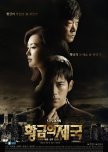
I bet the huge portion of the viewers will find this show tedious, pretentious and hard to get through. The whole plot structure is based on conversations, mostly business oriented, full of figurative speech and literature and/or philosphical references. It might be heavy and overwhelming to some, but personally I find the overall tone of this show really mesmerizing and the whole experience very enriching. It satisfied my aesthetic needs, challenged and provoked my intellect and provided a really good piece of entertainment.
This show engages you mind to the fullest, but leaves you heart cold, as the writing doesn't try to emotionally connect you with the characters. At all. It's hard to sympathize with those emotioneless stoic figures. Desire for power, figuratevily presented as Sungjin Group, is their only agenda and greed is their only driving force in live. The characters are ruthless, cynical, treacherous and self-serving. Interactions between them is a neverending fest of backstabbing, lying and strategic plans to bring (mis)fortune to each other. They act more like some sort of abstract ideas/archetypes, rather than real people, but it fits the narrative exceptionally well. I see this story as nothing more than a modern day tragedy (in a literary sense) examinating how far human greed can go. The characters are just a vessels for this narrative.
Humans consumed by their desires, never able to achieve their goal. Greed is a source of hunger that will never be satisfied. Being in a position of power will only bring misery and loneliness. Power corrupts the mind and revenge is always lonely and pititful. It's a neverending cycle of self-perpetuating destruction and the titular Golden Empire is just hollow.
It doesn't mean the characters are one-dimensional evil fools. They're nuanced and twisted and gradually developed m. Driven by their own sense of jusitice, twisted revenges and grand desires. It's hard to root for just one person because they're all equally unlikeable... and interesting. From ambitious Tae Joo, through vengeful Min Jae, to ruthless Seo Yoon (honestly, one of the best female characters I've seen). Our biases will change as frequently as alliances in this drama and at one point they might eventually stop. I'd say it helps us stay grounded and not get fooled by the players of this game.
Acting and the visual aspect of the set also resembles the aesthetic of theatre play. It's a low budget drama, so we usually see the same 4 locations over and over again. Some of them have a deeper, symbolic meaning (like the dinner table or the main office in the Sungjin Group HQ), but usually it's just result of budget cut. It creates a specific, kinda claustrophobic, atmosphere straight from the theatre stage.
It took me some time to get used to the acting that was quite robotic for most of time. It looks really old-school which has it's charm, I guess. Unfortunately, sometimes it's really underwhelming because weaker performance minimize the actual development of the character. That's the case of Lee Yo Won. Her face was blank most of the time and it looked like she took the "stone cold characterization" just too literally. Other actors were more generous with their delivery of micro-expressions even when they played simillar characters. It's just something you either love or hate here. I was indifferent most of the times.
Overall, Golden Empire is a fantastic show. Sophisticated, engrossing and mentally stimulating. It perfectly blends the line between being overly dramatic and completely serious, which suits my taste.
And I swear, if they don't play the main theme at my funeral, then I'm not dying.
Was this review helpful to you?


 9
9 22
22 3
3






















